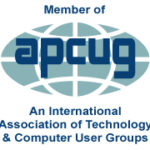Publishers vs the Internet Archive: why the world’s biggest online library is in court over digital book lending
30th August 2022
Joanne Gray, University of Sydney and Cheryl Foong, Curtin University
Earlier this month, the Internet Archive asked a US court to end a lawsuit filed against it by four large book publishers.
The Internet Archive is a not-for-profit organisation founded in 1996 that lends digital copies of books, music, movies and other digitised content to the public. It aims to support people with print disabilities, preserve digital content for future generations and democratise access to knowledge.
The publishers say the Internet Archive’s digital lending practices amount to wilful copyright infringement. Authors have also complained the site hosts pirated content.
The Internet Archive says it is behaving like an ordinary library, as it only loans digital copies of physical books it owns. Its supporters at the Electronic Frontiers Foundation say the publishers simply want “to control how libraries may lend the books they own”.
The National Emergency Library
Publishers were particularly concerned about the “National Emergency Library” set up by the Internet Archive in March 2020. This temporary project aimed to give teachers access to digital teaching materials in the face of widespread library closures due to the COVID-19 pandemic.
In June 2020, the publishers Hachette, Penguin Random House, HarperCollins and John Wiley & Sons filed a copyright infringement action. The publishers appear to want to shut down not just the National Emergency Library, but all of the Internet Archive’s book-lending practices.
The publishers claim the Internet Archive is engaging in wilful mass copyright infringement by lending digital books without permission from and payment to publishers.
The Internet Archive argues that, because it allows only one person at a time to borrow a digital book, it is simply replicating regular library lending. However, this restriction was temporarily relaxed for the National Emergency Library.
Ordinary library lending does not require a payment to publishers. Once a library purchases a book, the library is free to lend it out to its members.
The publishers are arguing that digital books are not equivalent to physical books and should be treated differently under the law.
Copyright déjà vu?
Didn’t Google already win the argument about digital books years ago? Yes and no.
Google began digitising library books in 2002. In 2005, book publishers and authors brought a high-profile lawsuit against Google for copyright infringement, which took a decade to resolve.
In the case against Google, US courts decided that making full copies of books and displaying snippets of those books to the public in the Google Books database is a “fair use”.
When deciding for Google, the courts paid particular attention to the historical purpose of copyright, which is to serve the public interest in access to knowledge.
A question of markets
But the Google Books decision does not mean book publishers will lose again against the Internet Archive.
In the United States, when deciding whether a use is fair or not, courts need to consider the extent to which the copyright owner’s markets are harmed.
Because book publishers often lend e-books commercially (including to libraries), the Internet Archive could be seen as harming that aspect of publishers’ market.
It could be said that, by providing online access to books in full, the Internet Archive is doing for free what the publishers do for payment.
This is different to the Google Books decision, in which providing access to snippets of books in Google’s database was considered to potentially enhance the market for books.
What counts as fair use?
The flexibility of fair use is one thing the Internet Archive has on its side, however.
There is room for the court to assess the public benefit of the Internet Archive’s lending practices which, as the National Emergency Library exemplifies, are undeniably strong.
Assessing whether the public interest arguments are strong enough to overcome the weight of the market harm may be key to deciding who wins this case.
The Internet Archive may also have difficulty establishing that its practices are simply an extension of the traditional role of libraries, and beyond the boundaries of publisher’s legitimate markets.
In a case in 2013 involving a “second-hand” market for digital copies of music, US courts decided that emulating analogue models of dissemination was not enough to evade copyright infringement.
Access matters in the digital age
Underlying this recent dispute is a now decades-old tension between media industries born before and after the advent of the internet.
Prior to the internet, media and entertainment businesses made money by selling individual copies of content (think books, CDs, DVDS).
But individual copies have lost value in the internet era. Online, we seek access to content rather than ownership of copies of content.
In the music and video industries, subscription or ad-supported streaming services such as Spotify and Netflix have largely prevailed.
However, the lawsuit against the Internet Archive shows we have not yet, in 2022, found the right legal and economic settings for access-based book-publishing models to thrive.
Finding a way forward
Entities like Internet Archive have been trying to operate in the grey area between old and new by, for example, limiting access to match the number of print books in storage.
Rather than aiming to eliminate these grey areas, publishers should look to these activities as evidence of unmet demand and a failure to be agile in times of crisis.
Publishers should adapt their dissemination models to the needs of society.
Rather than institute restrictive terms and conditions for access, they should work with libraries to build sustainable models for dissemination that ensure books are available to people who need access to our shared knowledge and culture.![]()
Joanne Gray, Lecturer in Digital Cultures at The University of Sydney, University of Sydney and Cheryl Foong, Senior Lecturer in Law, Curtin University
This article is republished from The Conversation under a Creative Commons license. Read the original article.



Recent Comments